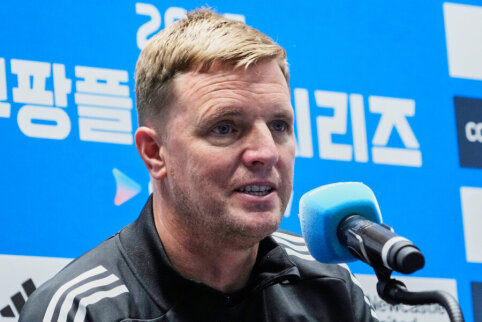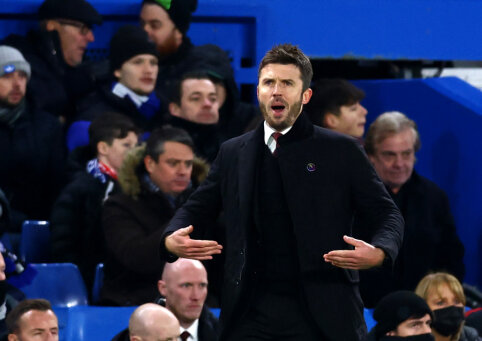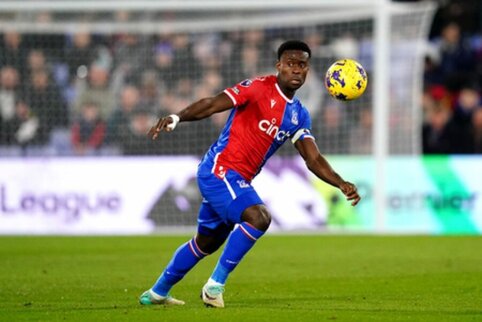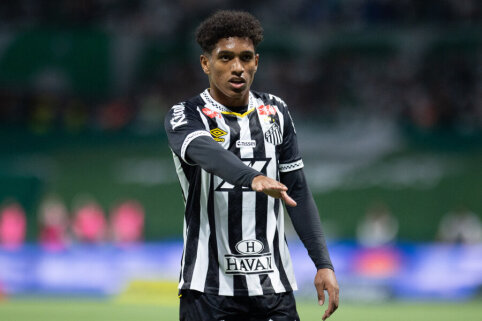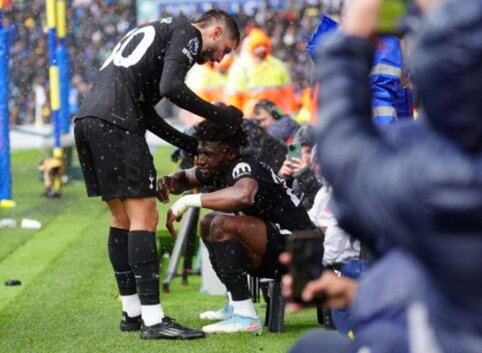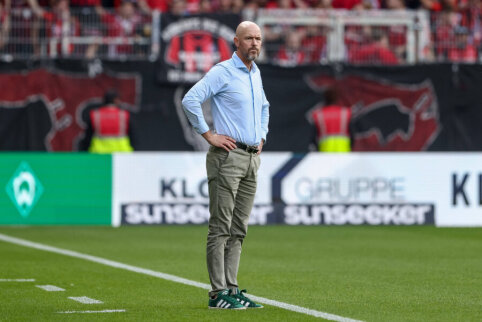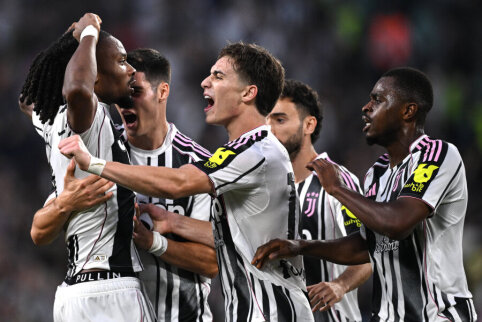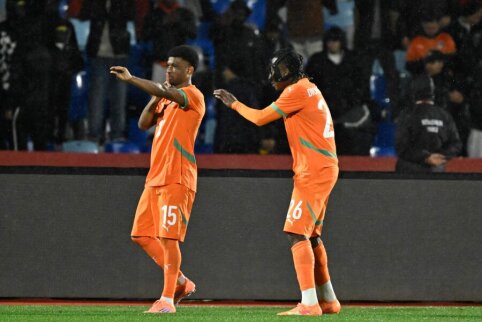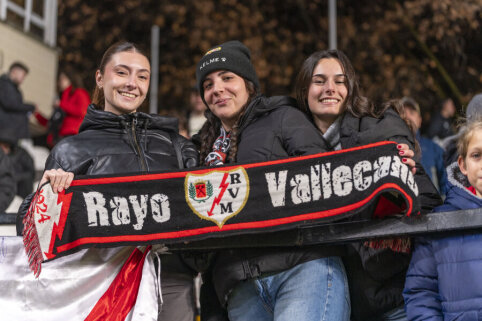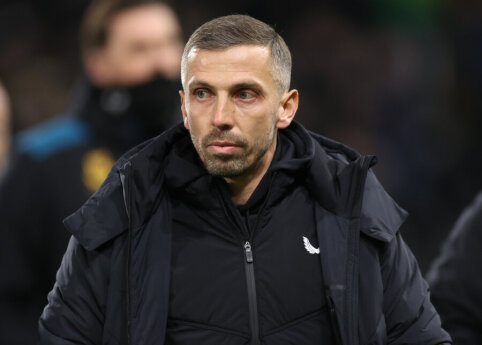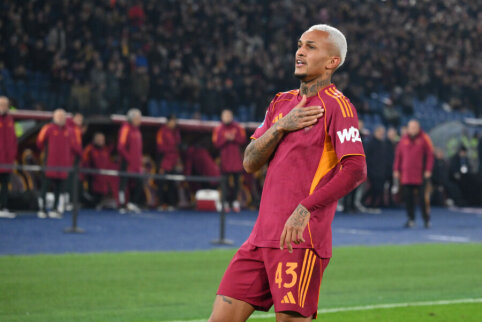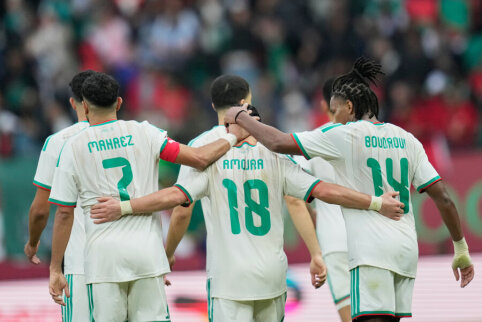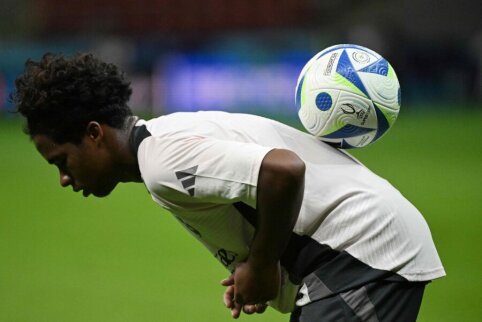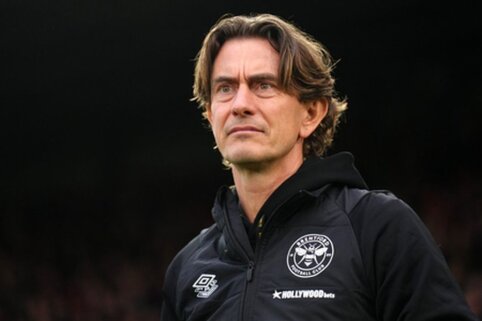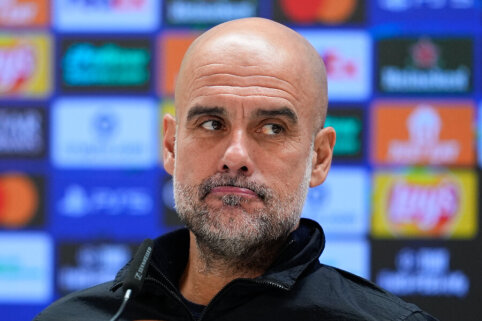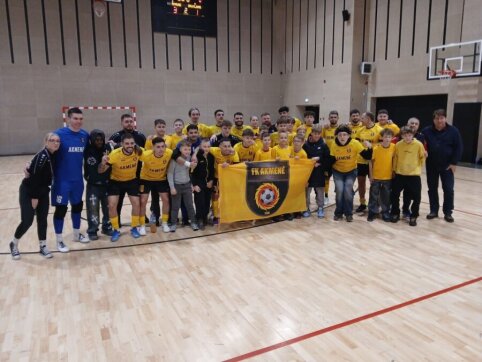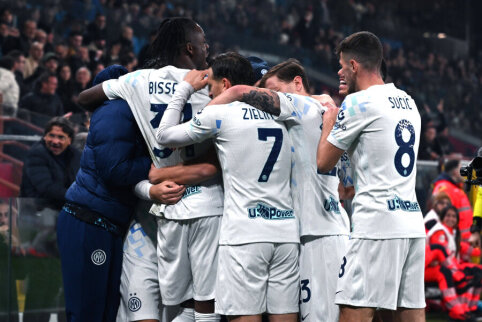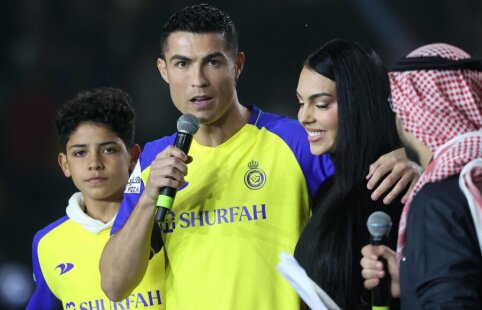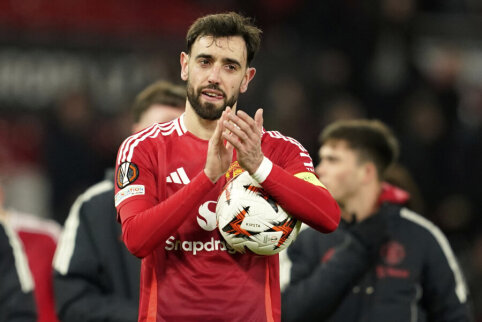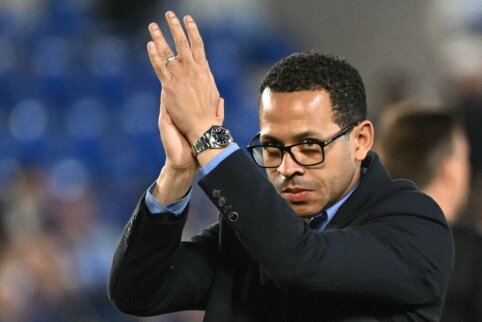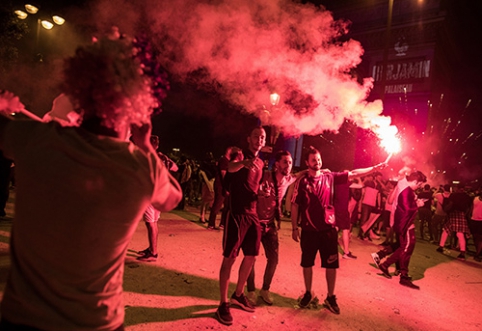
On Sunday, the World Cup in Russia ended, giving football fans many great moments, according to lrt.lt. However, although this event was intended to be used for propaganda and gathering purposes, inviting all the strongest football teams to his yard can inspire and bring about changes that are not entirely beneficial for the country.
During the World Cup, Russia seemed to be divided into several parts: those who simply live for football and its battlefield, and those who saw many problems behind the beautiful facade. These are social and economic problems, as well as international isolation, which will be talked about louder and louder after the fanfare has subsided.
Although V. Putin watched the Croatian and French duel for gold at the Luzhniki Stadium on Sunday together with FIFA President Gianni Infantino, French President Emmanuel Macron, and Croatian leader Kolinda Grabar-Kitarovič, the Russian leader, who is currently struggling with declining popularity, may not expect such a large company again in the near future. According to Lithuanian Ambassador to the Russian Federation Remigijus Motuzas, isolation should continue.
"The decision (to grant Russia the right to host the World Cup - LRT.lt) was made before the political situation in Europe changed - before events in Crimea and Eastern Ukraine, before Russia redrawn borders in Europe. Of course, the international attitude towards Russia has changed, but sports is sports, so it was decided to organize the competition in Russia. (...) On one hand, Russia is trying to emphasize that the World Cup is currently the most important, but on the other hand, it is impossible to separate from those problems. I think that until Russia solves the frozen problems, the international situation and isolation will not disappear," states R. Motuzas.
And changes were hoped for, with enormous funds being poured in - it is estimated that the tournament cost Russia about $11 billion, which was also used to improve infrastructure and build stadiums. However, some extremely costly arenas may become simply unnecessary. For example, Kaliningrad does not even have a team playing in the top Russian league, and the "Baltika" team in the second-tier league attracts only a few thousand spectators to home games. This seemingly illogical step could have been determined by both worldview and certain calculations.
"During the post-Soviet period, there was always a desire to appear better than opportunities allow. That aspect remains. (...) Also, Russia hoped to attract many investments, have many companies coming in, not only to build stadiums but also to improve infrastructure. They did not come. (...) Investors also do not trust the political climate - the ruble exchange rate has fallen, and the geopolitical situation makes it dangerous to invest. Except for the built stadiums, the championship of high added value did not bring. Currently, a working group has been created to consider how to use those huge objects and other infrastructure," says the ambassador about the situation in Russia.
The government will also have to think about how to appease the people who are upset with its decisions. One of the decisions that caused a lot of discussions and dissatisfaction - raising the retirement age. Currently, men can enjoy their earned rest from the age of 60, and women from the age of 55. According to the new law, this age barrier would increase to 65 and 63, respectively. This condition caused an unprecedented effect - as usually during major sporting events the whole country stands united.
"We see that there is a universal patriotism when a certain event is declared and all of Russia supports it. Now it cannot be overlooked that the government, which supports the World Cup and aims to ensure that it runs very smoothly, that world leaders come to visit, leaves the society behind. And political experts have noticed that immediately the government was not identified with the nation. While the nation was protesting about pension reform and other social issues," says R. Motuzas, citing a decline in living standards as one of the reasons.
Such dissatisfaction and the government's detachment due to more important matters resulted in a real storm in Russia, where mentioning protests should not even be considered for the safety of the residents.
"From July 1 to the 5th, protests took place in 40 Russian cities. However, they were not allowed to be held in cities where the World Cup was taking place. A year ago, a presidential order was issued on a special regime, organization of rallies, processions, meetings during the championship. Basically, they were either prohibited or, if a smaller group, recommended to refrain. Russia is large, so cities where the championship matches did not take place did not feel it," the interlocutor notes.
However, at least Moscow, which has become the center of attraction for fans for a month, has changed. According to R. Motuzas, people started to smile more, became less tense, and have "free evenings to socialize, participate, gather, sing, shout out loud, be happy, etc." However, it is interesting whether this will last long, as a frequent party is often followed by a splitting headache.
Arnas Šarkūnas, specialiai LRT.lt iš Maskvos
